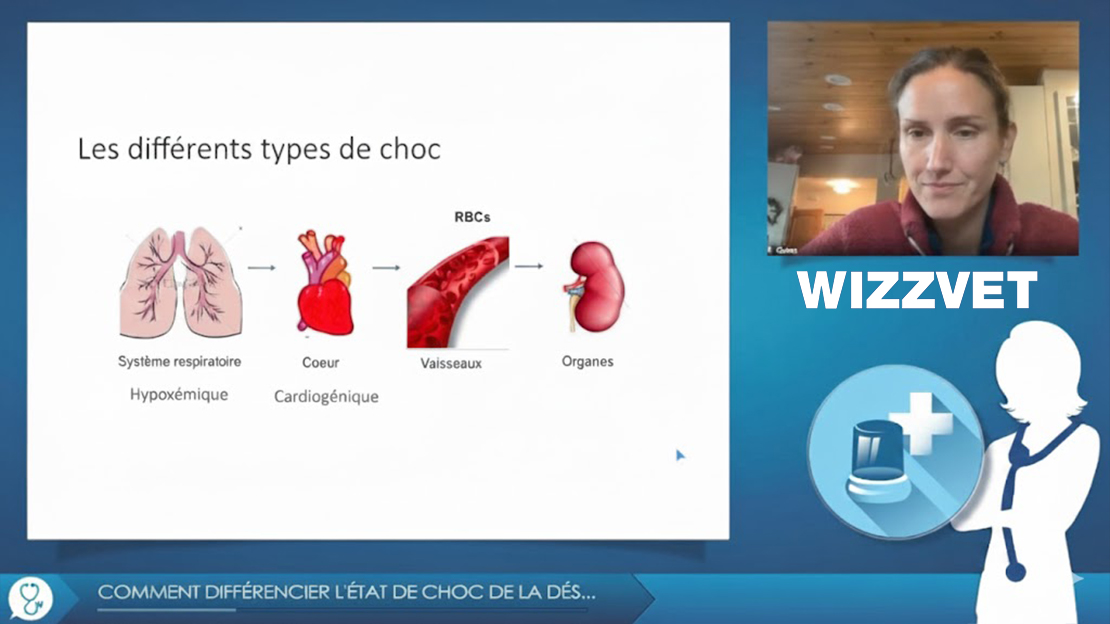Comment différencier l'état de choc de la déshydratation

- Comprendre la physiopathologie sous-jacente à la déshydratation et au choc hypovolémique
- Différencier les signes cliniques associés à la déshydratation et à l’état de choc hypovolémique chez le chien et le chat
- Connaître les différents types de choc et savoir interpréter les données cliniques et paracliniques pour déterminer le type de choc qui affecte le patient
Dr. Liz Guieu obtained her DVM from the University of Liège, Belgium in 2008. Afterwards, she completed a rotating internship followed by an Emergency and Critical Care fellowship at the Vet School of Maisons-Alfort (Paris, France).
She became a diplomate of the American & European College of Emergency and Critical Care (ACVECC) in 2016 after completing her residency at the University of Guelph (Ontario, Canada).
She has recently joined Colorado State University in beautiful Fort Collins, CO as a Clinical Assistant Professor.
Her primary interests include mechanical ventilation, sepsis, patient care and developing a strong nursing team.
She became a diplomate of the American & European College of Emergency and Critical Care (ACVECC) in 2016 after completing her residency at the University of Guelph (Ontario, Canada).
She has recently joined Colorado State University in beautiful Fort Collins, CO as a Clinical Assistant Professor.
Her primary interests include mechanical ventilation, sepsis, patient care and developing a strong nursing team.

